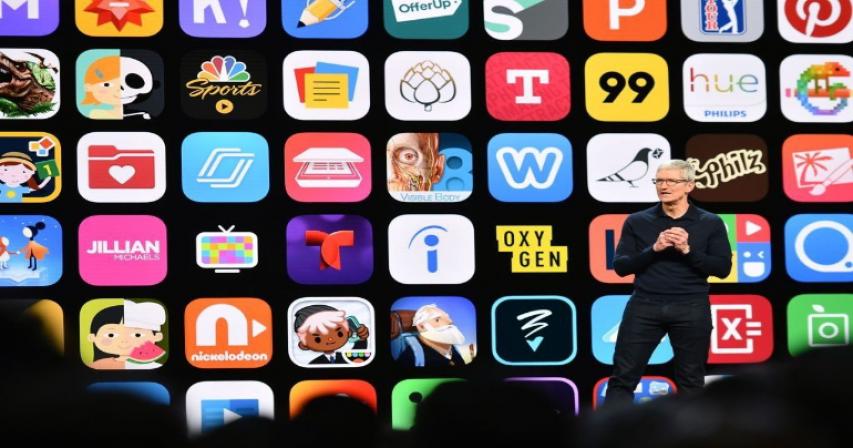iOS15 - China exempt from Apple private relay privacy feature
- 4 years ago

Apple has announced a raft of new privacy protections at its annual software developer conference.
They include a function called "private relay", where users' web browsing behaviour can be hidden from Apple, internet providers and advertisers.
Apple has been under pressure to cut down on the tracking of user data.
However, the feature will not be available to users in China, one of its most important markets, due to regulatory reasons.
It's the latest compromise that the tech giant has made on privacy in China, where 15% of its revenue comes from.
The Internet is closely controlled in China, which also employs an extensive surveillance system on its residents.
The function will also not be available in several other countries, including Saudi Arabia and Belarus.
How does 'private relay' work?
Apple says the feature sends traffic to a server maintained by Apple, where a piece of information called its IP address will be removed.
From there, it goes to a second server operated by a third party, where it will be given a temporary IP address and sent onto the destination website.
Apple says the use of an outside party means "no single entity can identify both who a user is and which sites they visit".
Experts say the function will prevent advertisers from using IP addresses to pinpoint a person's location too.
Apple did not immediately respond to a request for more information on the regulatory issues involved.
But it did say the relay service will not be available in Belarus, Colombia, Egypt, Kazakhstan, Saudi Arabia, South Africa, Turkmenistan, Uganda and the Philippines as well as China.
The feature will likely become available in other markets later this year.
Apple also announced a number of new privacy features included in the latest iPhone operating system, iOS 15.
Users will be able to track which apps are collecting data and some apps like Mail will hide IP addresses in order to block tracking.
The new features are likely to hinder social media companies like Facebook, Google and Twitter as customised advertising based on user data is central to their business model.
Source: BBC
Comments